Marketing Tool: Top 6 popular marketing tools for Marketers

Marketing Tool is a familiar term for marketers. It is a tool to support the marketing and communication process more effectively. However, today Marketing Tool has many types with different features, meeting all the needs of businesses.
Let us learn about Marketing Tools with CleverAds, popular Marketing Tool groups in the article below!
1. What is a Marketing Tool?
A marketing Tool is a tool that businesses use to develop and promote products and services. In any case, most businesses use a variety of marketing tools. Those marketing tools are combined and used at the same time to bring the best effect.
2. Benefits Marketing Tool brings

Save time, cost, and effort: The amount of information is broad, so implementing a marketing strategy requires a lot of time, cost, and human resources. Therefore, using Marketing Tools will help businesses reduce the above problems. Moreover, using Marketing tools, businesses can choose the right marketing channel, target the right target audience, and narrow the reach of potential customers.
Measure easily and effectively: Thanks to the Marketing Tool, you can easily capture and synthesize information. Marketers can track the number of visitors to the website, where they come from, visit time, visit items, etc. Marketing measurement is a definite advantage for businesses to enhance their competitive advantage. compete against the opponent.
Understanding customers: Customer behavior has a great influence, directly on the revenue and profit of the business. Actively understanding customers, and knowing what customers like and want will bring benefits to businesses. Specifically, helping businesses to produce and provide perfect products and services to meet the current needs of customers.
3. 6 popular Marketing Tool groups
Currently, there are a variety of Marketing Tools to suit all business needs. However, they are grouped into 6 popular Marketing Tool groups with outstanding tool types.
3.1 Digital data analysis tool
Google Analytics
Google Analytics is a free tool from Google, very familiar to most Marketers. Google Analytics can provide information including the Number of visitors to the website at a specific time (day, week, month, year, or any period), demographic analysis and interests of the user, the keywords that the user uses to search for the website, the starting point of the visit (from google search, another website, advertising, social networks or directly typing the domain name), the time each user is on the website. Thereby helping businesses make comments and improve the user experience on the website.
Google Analytics has 3 levels of settings:
- Level 1 – Account: Set up a general account to perform management
- Level 2 – Property: Set up tracking IDs for each specific website
- Level 3 – Views: Set the view ID of each landing page you want to integrate with Google Sheet
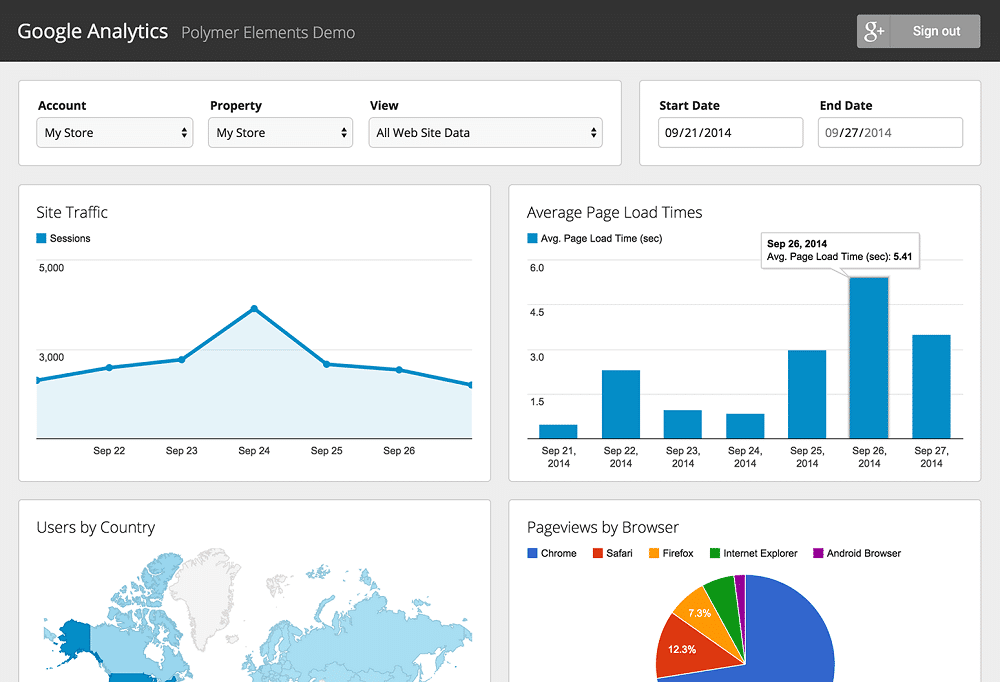
Kissmetrics
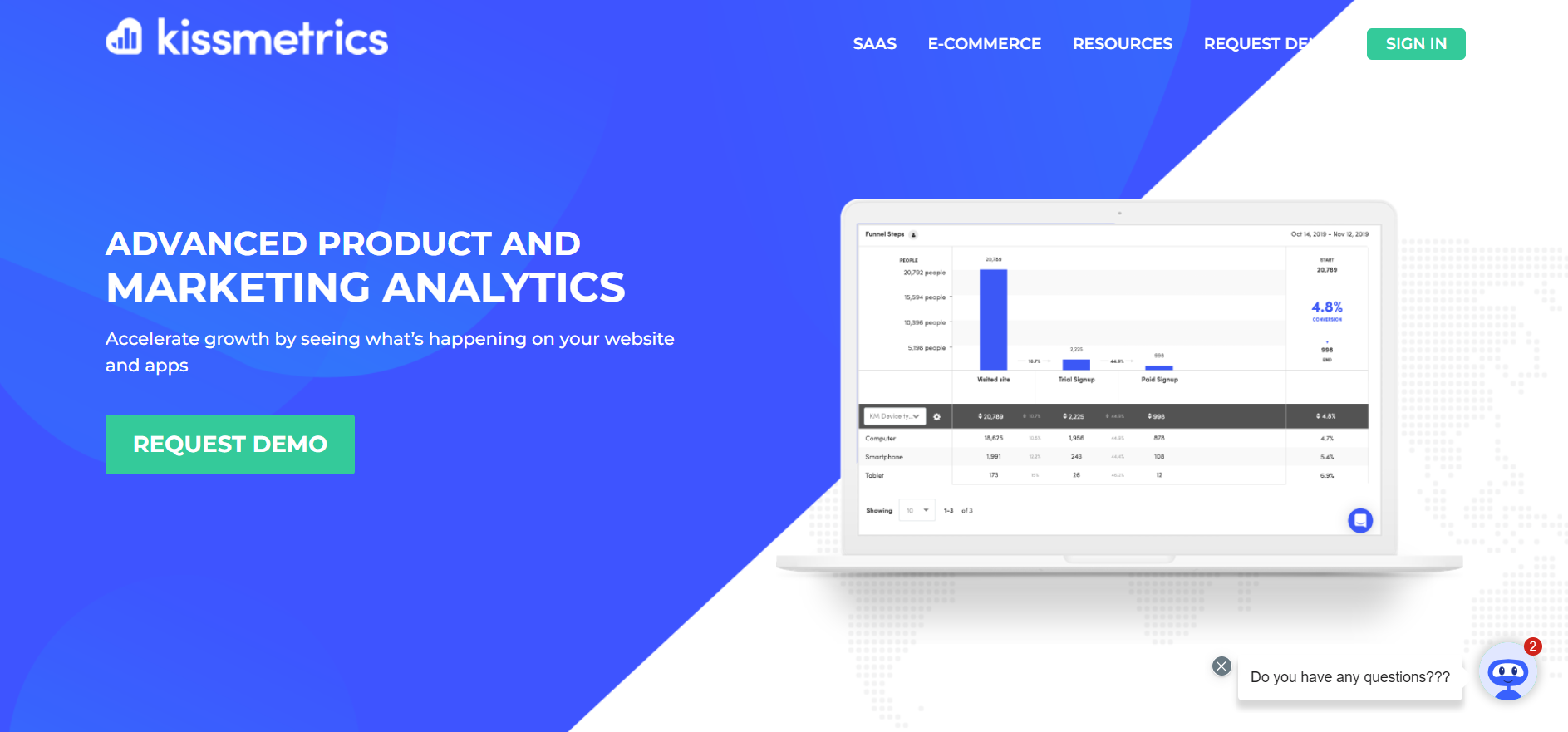
Kissmetrics is a paid website analytics and measurement tool. This tool helps analyze conversions from the moment a visitor lands on the website until the visitor converts. Kissmetrics will statistics data about users on the website such as what page they are on, what content they read, and what keywords they search for. Then offer useful solutions to help businesses convince users to buy. So, Kissmetrics helps businesses improve the best ROI.
Semrush

Semrush is a website index analysis tool. Thanks to Semrush, it’s possible to see your competitors’ keyword rankings, get a market overview, and research and analyze new and niche markets. Thereby, this tool helps Marketers optimize SEO and the best Google Ads advertising strategy.
Semrush is the ideal marketing tool for small and medium businesses.
3.2 SEO keyword analysis tool
Google Keyword Planner
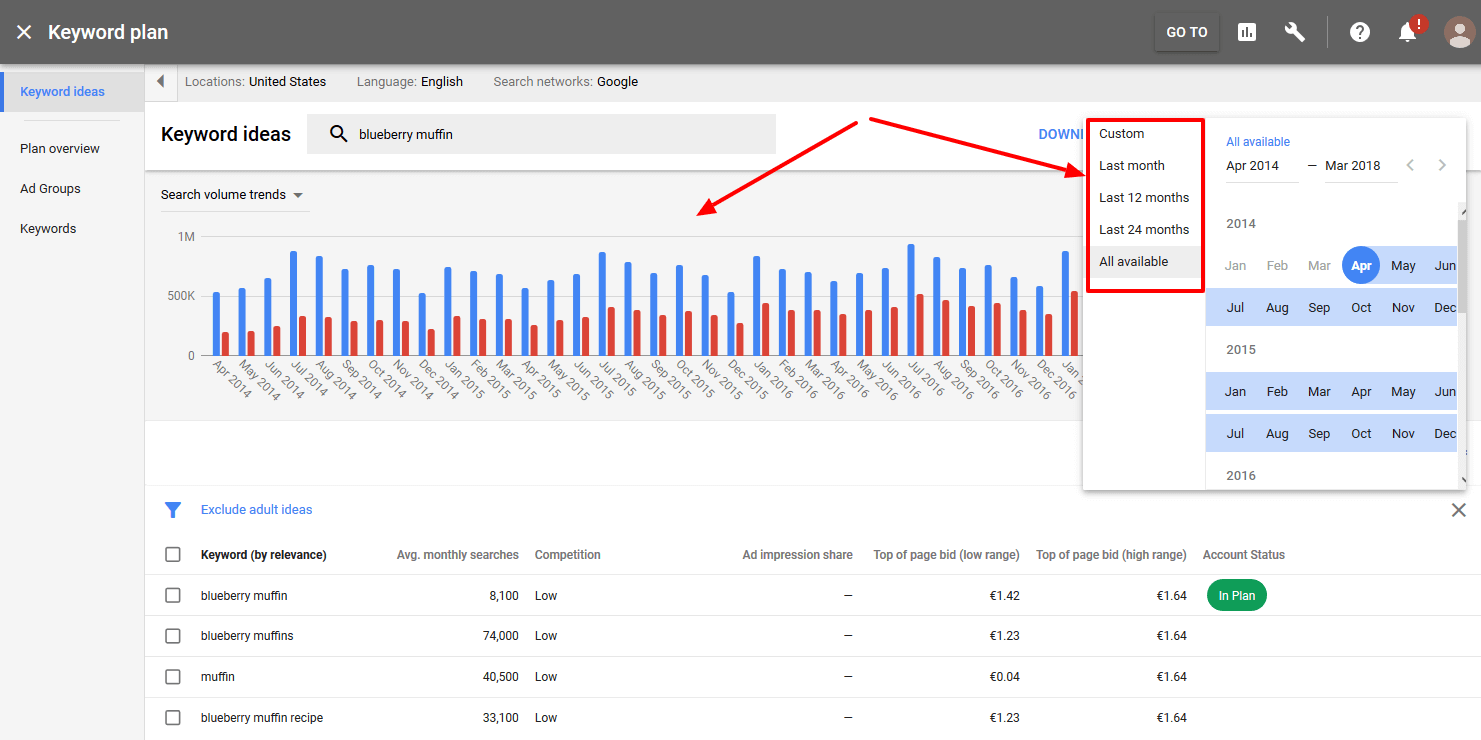
Google Keyword Planner is a familiar tool in Google’s Adwords campaign. This tool helps users to check the average search volume of keywords, the level of competition, and the difficulty of that keyword compared to competitors. From there, Marketers can create marketing campaigns with minimal costs and still bring high efficiency.
Google Trends
Google Trends is a tool from Google that helps users compare Google search results around the world by providing statistical results and comparing keyword trends over time, in each country. family. This tool displays the number of keywords searched over time in the form of a graph. In addition, the tool also suggests trends based on the keywords users are searching for, making it easy for marketers to create “trending” content at the right time.
Read more: What is marketing analytics? How to effectively use it?
3.3 Landing page creation tool
Ladipage
Ladipage is considered a platform to help marketers unleash their creativity when designing landing pages. With quick drag-and-drop operations, this platform makes it simple to design landing pages, with no need to write every line of HTML or CSS anymore. Besides, this tool also provides a database of more than 500 Landing pages with many different fields, convenient for users to freely choose the right page for their goals.
Instapage
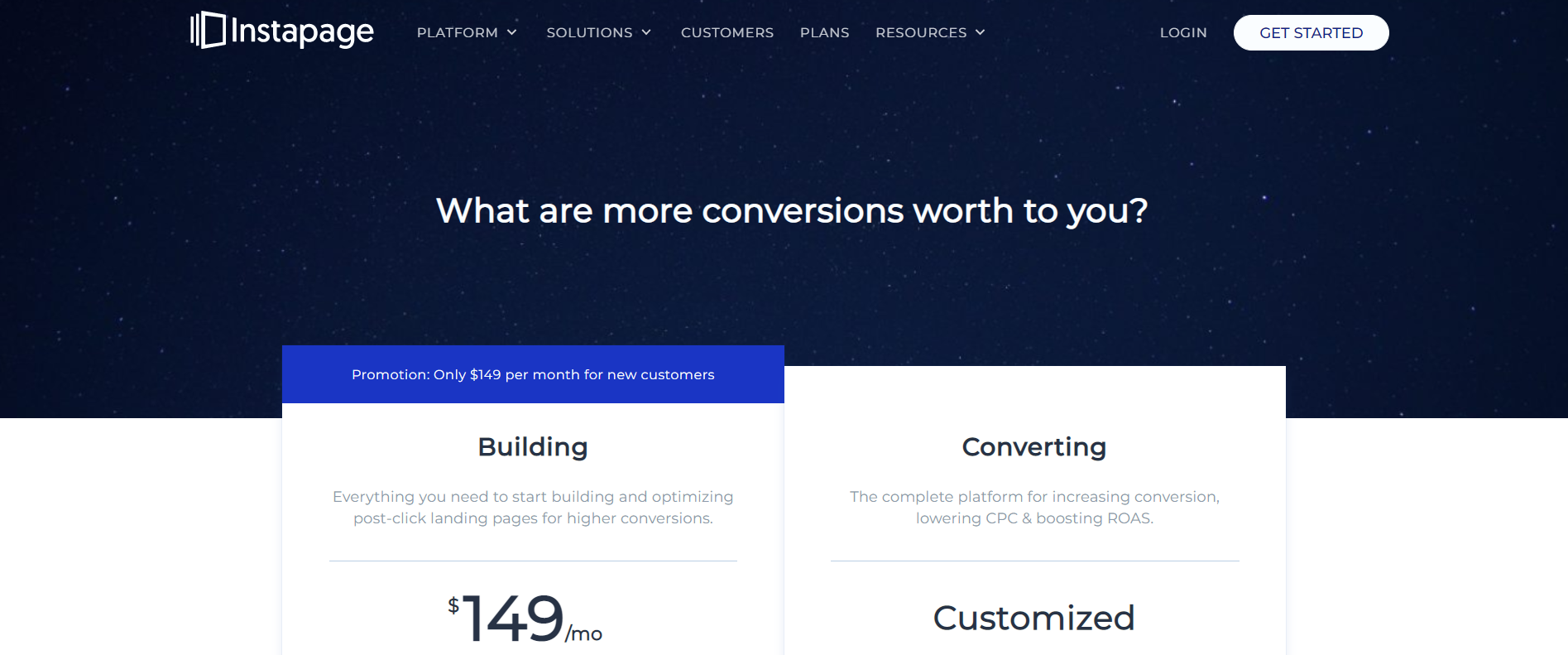
Instapage is a platform to help create professional landing pages with outstanding features such as optimizing pages for search engines, A/B Testing, managing multiple campaigns, and collecting user data to help Marketers increase ad conversion rate.
3.4 Content Marketing tool
Buzzsumo
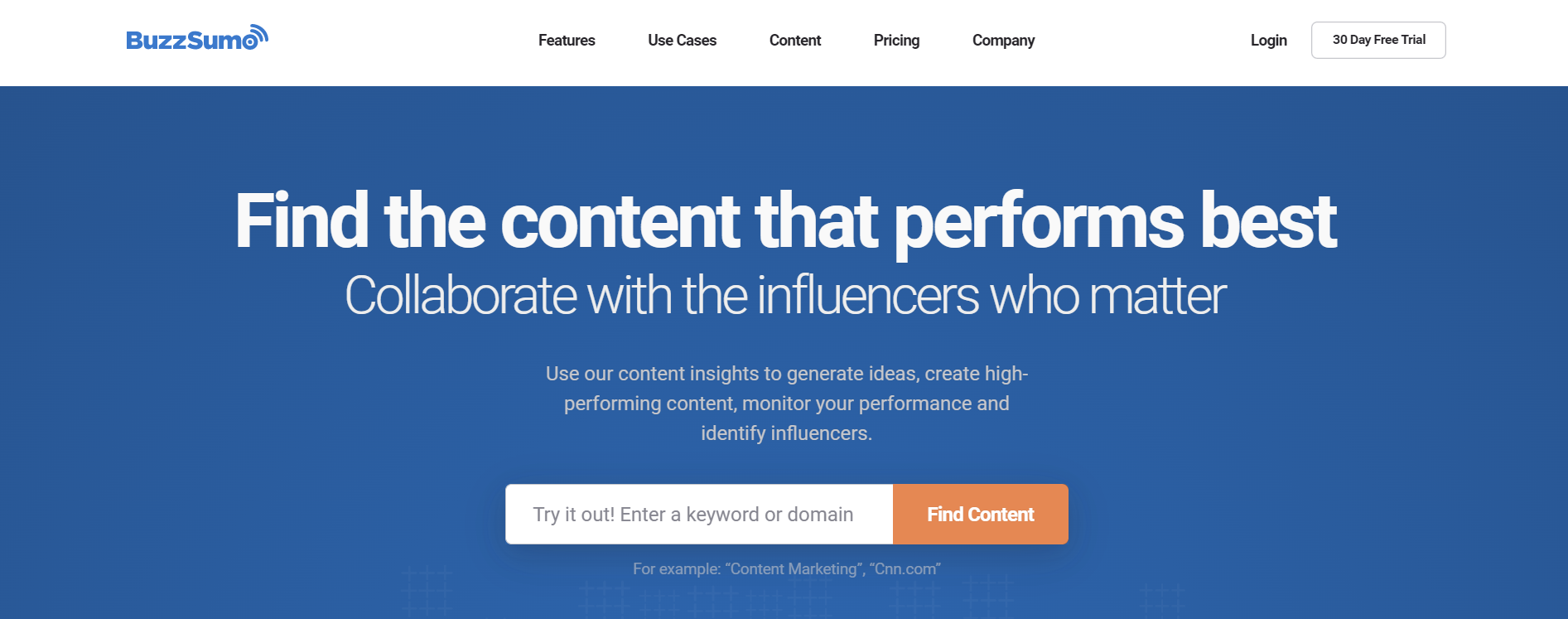
Buzzsumo is a tool to help identify trending content in the industry, thereby suggesting topics to write about. Moreover, this tool also provides a list of the content with the highest interest when searching for any keyword, helping to plan specific editorials and effective article scheduling.
Buzzsumo is a tool that saves a lot of time and effort for marketers.
Canva
Canva is an easy-to-use tool that adds images to articles. This tool helps to design high-quality images with pre-designed templates. In addition, Canva also owns an extremely rich design library with many beautiful fonts.
Canva is the right tool for creating graphics that are both simple and beautiful.
Newscred
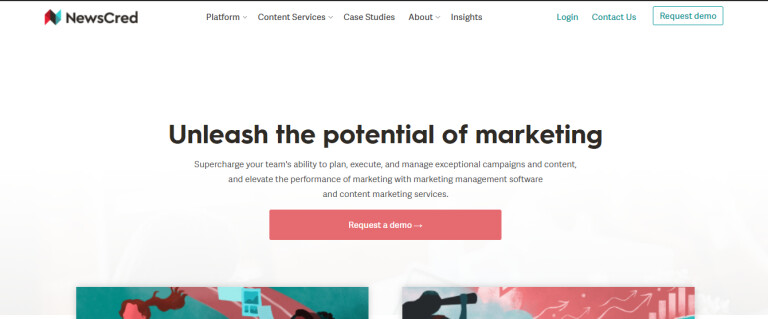
Newscred is a tool that works according to the criteria of “Fast, efficient, and scale”. With this tool, millions of content creators with more than 160 thousand different discussion topics are provided, making it easy for users to choose and refer to content.
3.5 Customer Relationship Management Tool
NextCRM
This is a comprehensive customer management software. This tool uses cloud computing or customers can use an on-premise package to run the server. NextCRM’s strength is multi-channel automated marketing to help businesses easily reach potential customers. In addition, NextCRM also has software systems to fully meet the needs of customers.
Salesforce
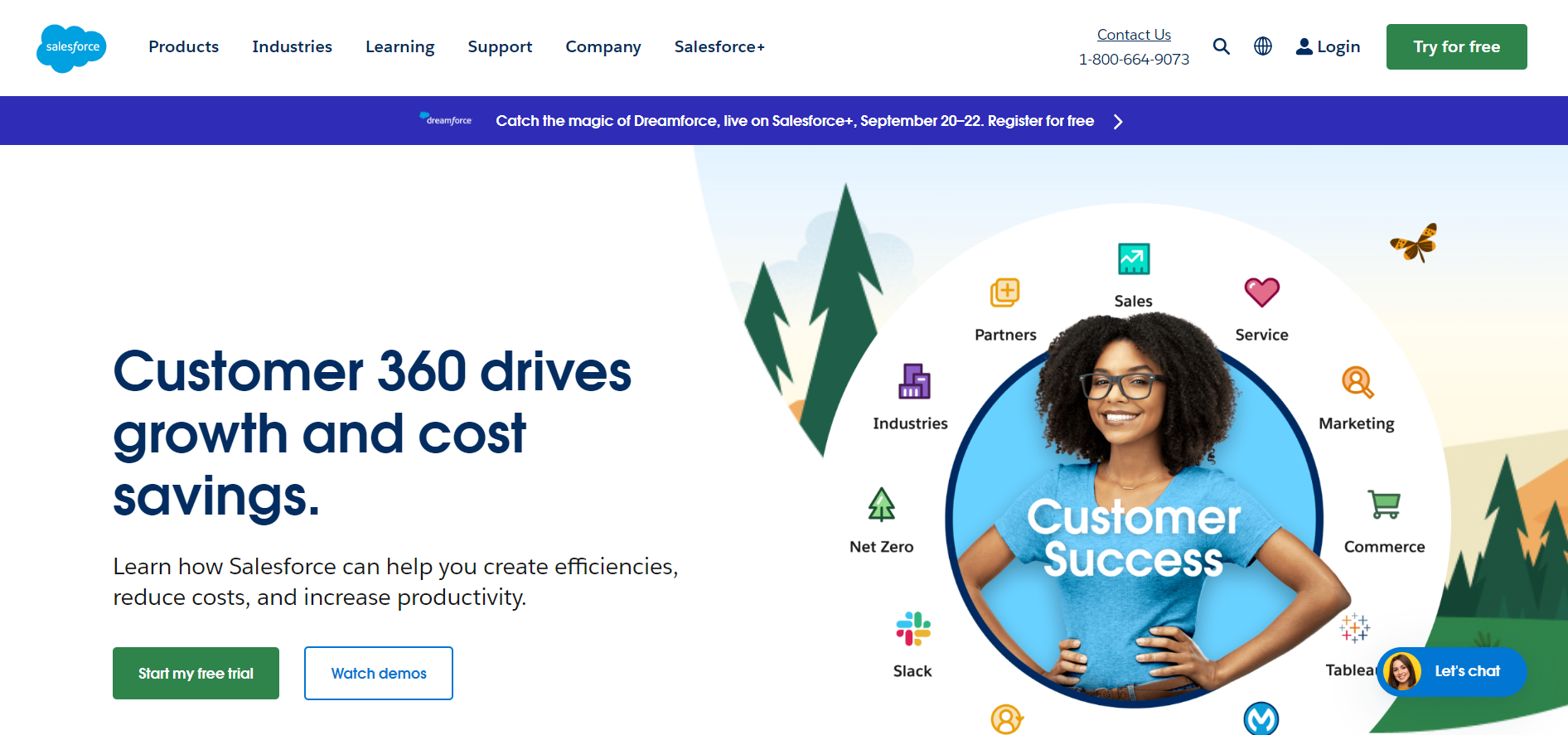
Salesforce is a customer relationship management platform that is now highly appreciated by many businesses because of its simple, easy-to-use, and user-friendly interface. This tool is cloud-based to increase the interaction of businesses with customers such as marketing, sales, and services. Salesforce helps to aggregate customer information such as name, phone number, email, and function name.
Zoho CRM
Zoho CRM is a tool that offers key features and integrations including customer relationship management and email marketing automation at a competitive price compared to other tools. In particular, with the customer relationship management feature, Zoho supports identifying high-converting customer files and closely tracking transactions.
Zoho is PC Mag’s top pick for CRM software in 2021.
3.6 Email Marketing tool
MailChimp
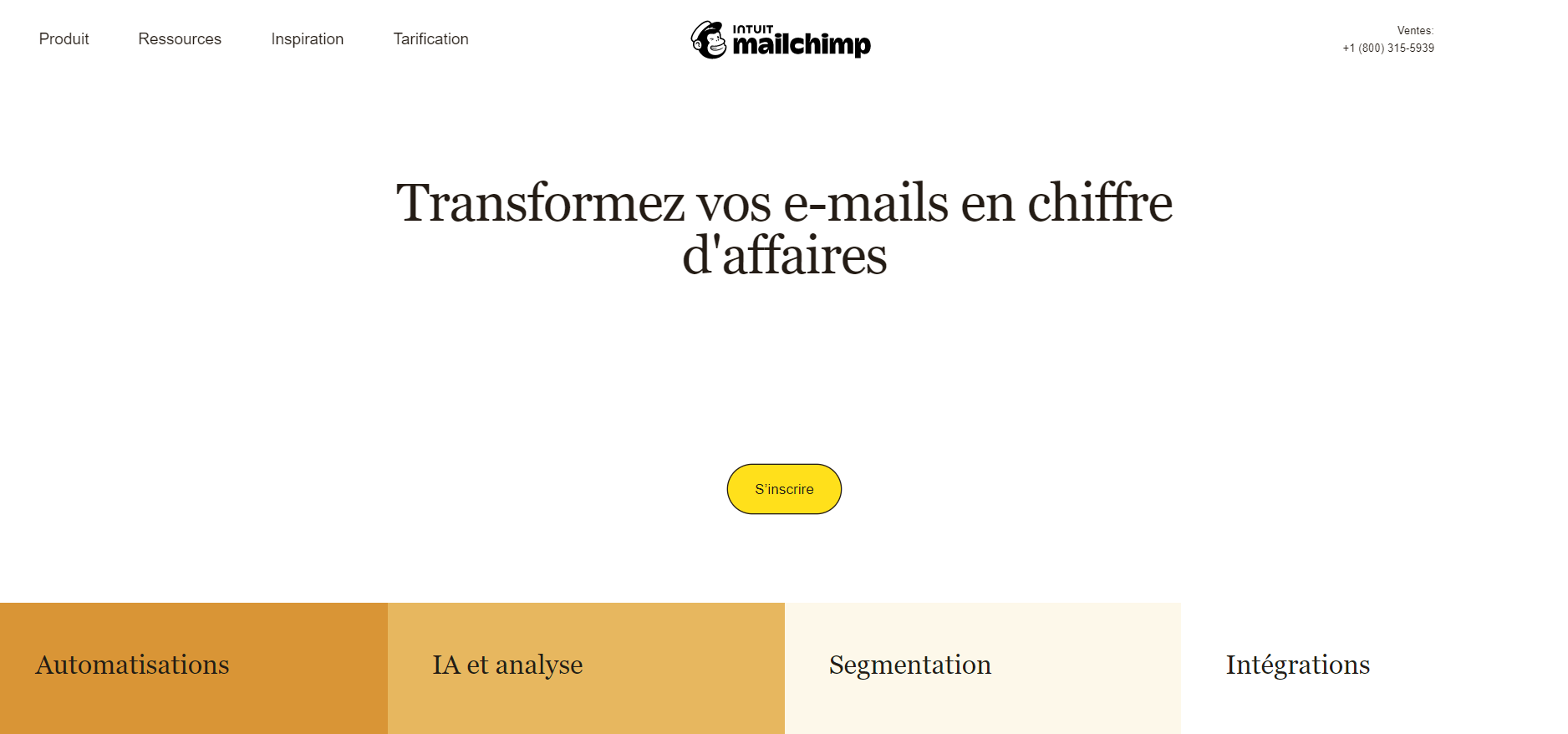
MailChimp is a very easy-to-use Email marketing tool. This tool is an ideal platform to get started with email marketing, whether you need a simple digital marketing tool or an advanced solution. MailChimp helps to send automatic monthly emails to the target audience. Then, analyze the results of the email marketing campaign accurately so that you can adjust and improve the victory of the campaign. In addition, Mailchimp offers a lot of free, beautiful, and impressive email templates.
GetResponse
GetResponse is the most popular email marketing tool today trusted by many Marketers. This tool allows importing and managing email lists, automatically sending customer care emails through the autoresponders feature, and analyzing specific data related to email marketing campaigns such as email open rates, and clicks. Clicks email forwarding times, etc. Besides email marketing, GetResponse also provides hosting for the webinar, and landing page and provides features related to customer relationship management (CRM).”
Read more: Marketing Channels: Everything You Need To Know
4. Criteria for choosing the right Marketing Tool for your business
Read more: Criteria to select package marketing services for businesses
4.1 Ratio
Depending on the size of the business, choose the appropriate Marketing Tool.
Example: A small business with a small number of employees may not need cloud-based project management tools. And even if the business is not a B2B company SAAS (a company that provides software such as applications, extensions, and add-ons to other businesses as a service) may not need all of them. all the features of the CRM platform.
4.2 Marketing skills
Marketing skills will determine which Marketing Tool is more suitable for Marketers. A tool, each marketer will use differently. How effective it depends on their marketing skills.
For example: With the same SEO keyword analysis tool, someone with good knowledge of SEO will use the tool better and more effectively than someone who does not know anything about SEO.
4.3 Budget & Funding
This is an important criterion for businesses when deciding to buy a Marketing Tool. Based on the budget of the business, and the cost to pay when buying the tool, choose a reasonable type of Marketing Tool. When valuing tools, you should consider what businesses need, and the need to use that tool. Also, don’t overspend on unnecessary tools.
4.4 Existing tools and overlap
When choosing a Marketing Tool, it should be pointed out that many of the marketing tools out there have a function of their own. It is not always necessary for a business to have a dedicated tool for each marketing function.
For example, Project Management Tools could fill a need for content schedule as an alternative to the Content Marketing tool.
5. Conclusion
The above article is knowledge about Marketing Tools and summarizes 6 popular Marketing Tool groups to know. CleverAds hopes businesses can choose the right marketing tools for themselves. Using marketing tools productively will help businesses optimize efficiency, save costs and improve business advantages.


